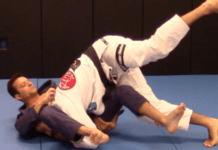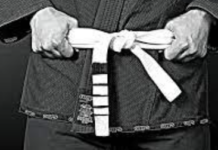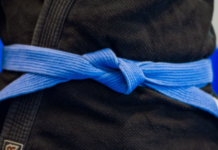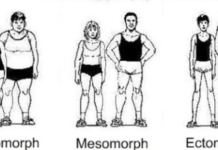It is better to be the heaviest in your weight category than the lightest. So generally, most people cut weight for competitions, not the other way around. Some gradually lose weight with the help of diet and intensive training weeks before the tournament. Others, on the other hand, take on some more extreme methods, which allows them to lose even up to a few kilograms within days or even in hours. Such a significant weight loss in such a short time is called extreme weight cutting. Today more about it and why it can be dangerous.
What exactly is considered extreme weight cutting?
Extreme weight cutting is a process of rapid weight loss in the days and/or hours before weigh-ins and then regaining lost kilos back just before the actual competition. The most common methods of extreme weight cutting include starving of food and water a few days before the competition, using plastic workout suits and saunas to sweat as much as possible, doing hot baths and cardiovascular exercise to force the bodies to excrete fluids, taking medicaments such as diuretics. All this is for dehydrating the body and shedding as much water weight as possible.
Applying these techniques one at a time will simply help you to drop just a little extra weight and let you compete in a weight category close to your natural weight. While using several of these methods at once lets you lose a lot of weight. It could be even up to 15% of the body weight. Such extreme weight cutting has one goal – be bigger and stronger than your opponents and therefore simply have an advantage over them.
The dangers of extreme weight cutting
Dehydration of two percent of the bodyweight is considered safe. However in extreme weight cutting this percentage is much higher which makes this practice potentially life-threatening. Documented dangers include impaired glycogen utilization, Central Nervous System dysfunction, increases in core temperature, cardiovascular strain, and increased catabolic markers. With dehydration, the most common injuries are related to passing out, cardiac arrest, seizures, and complications with the kidneys.
All this because of the misconception that during sweating we only lose water. Doctors point out that sweat isn’t pure water. With sweat, we lose electrolytes (sodium, chlorine, potassium, magnesium, calcium), which are required for running the heart properly. Lose a lot of electrolytes can lead to heart arrhythmia, heart attacks, or even death. Unfortunately, dehydration is not the only threat, the rehydration process can be just as damaging. When you rehydrate you disturb your electrolyte balance. Doctors highlight that often when you rehydrate the fluid doesn’t distribute itself normally within the body, and it can go in the wrong places. Moreover, after dehydration, when you hydrate back, your body retains fluid. So you end up even heavier than before. But it’s just fluid, not muscles and you are over-hydrated which only makes you feel bad.
Deaths caused by extreme weight cutting
This whole process of first dehydrating and then rehydrating is like Russian roulette. So people who decide on such methods are playing a dangerous game. In the best option, you win the fight, in the medium scenario you lose, in the worst, you die. One of the fatalities was 18-year-old Muay Thai fighter, Jessica Lindsay. The Australian tragically lost her life after being rushed to the hospital and placed into an induced coma just moments before a weigh-in for a fight in November 2017. The primary cause of her death was ‘extreme dehydration’, as her heart rate reached 180bpm as she attempted to meet the 64kg limit of her upcoming fight. 1996 was also very tragic. This year there was a series of deaths related to extreme weight cutting. Three National Collegiate Athletic Association athletes died five weeks of each other.
Extreme weight cutting in combat sports
It is said that doping and extreme weight cutting are some of the most prevalent issues in today’s world of combat sports. Generally doping is rather poorly perceived and banned by many organizations. While opinions about extreme weight cutting are very divided, even despite the dangers and confirmed fatalities of such methods. Some even say in the present combat sports world extreme weight cutting is mandatory. No wonder that so many fighters decide on them. Some of the biggest weight cutting cases include UFC Champions such as Conor McGregor, Cris Cyborg, or Joanna Jędrzejrzyk. Below you can watch what Joanna Jędrzejrzyk had to go through to make weight in 2015. She had to lose almost 10 kilos.
And in this video, you can watch the story of Cris Cyborg. She was able to lose about 11 kilos in just 2-3 days.
In the end Conor McGregor and another emphasis that extreme weight cutting is dangerous.












